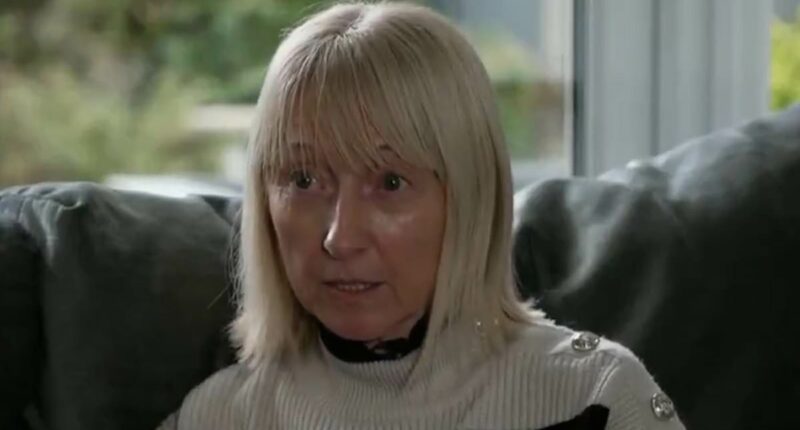Share this @internewscast.com
The mother of a young man with severe autism has brought attention to a controversial situation involving Waitrose, where her son had been volunteering. She appeared on national television to express her frustration after her son was effectively ‘let go’ when she inquired about the possibility of him being compensated for his work.
Tom Boyd, aged 28, had been volunteering at a Waitrose store in Cheadle Hulme, Greater Manchester. His participation began four years ago following a request from his parents and support workers, allowing him to gain valuable experience and routine.
Over the years, Tom dedicated more than 600 hours to the supermarket, performing various tasks such as stacking shelves. This dedication led his mother, Frances Boyd, to ask if there was an opportunity for her son to receive payment for his contributions.
Frances Boyd believes that the rejection of her request came from Waitrose’s head office. The company’s executives were reportedly concerned about the number of unpaid hours Tom had accumulated. As a result, he was told he could not continue working until the situation was clarified.
Frances shared that Tom had a deep passion for his role at the store. To spare him the disappointment of the situation, she told him that the store was closed for cleaning, rather than explaining that he was no longer allowed to volunteer.
Speaking on BBC Breakfast, Frances explained, “Tom started at Waitrose through a college placement. It initially involved just one hour a week, but as he became more adept at it, his hours gradually increased. Everything was going well and he was getting better at it.”
‘Eventually, when he left college we asked if he could increase that time to two days which it did. We thought this is working out, well why don’t we ask Waitrose if there is the possibility of paid work.’
Explaining his role at the store, Ms Boyd added: ‘He was bringing stock down from the stockroom, taking it onto the shop floor, stacking the shelves, tidying the shelves, putting everything in order and making sure everything was fully stocked.

Tom Boyd, 27, had worked for more than 600 hours over the past four years at Waitrose

Frances Boyd told BBC Breakfast that she asked Waitrose if her son could receive paid hours
‘He absolutely loved it. He loved that sense of belonging and the structure of going to work and the independence it gave him and feeling like a working man.
‘We’ve told him he was a working man once he started to go out and finish college and he used to say: ‘I’m working like my dad and my brother’.’
Ms Boyd explained that she and her son were at first given hope that a request for paid work might be accepted.
She said: ‘They didn’t say no which gave us a feeling it was a possibility. There was no ‘no’ immediately, so we thought ‘there’s a chance here’.
‘But at the time they said come back to us, we’ve got perhaps recruitment in January and then we can look at it again.
‘Time just went by and I think by July of this year it went to head office, because they couldn’t make a decision within the store without taking it to head office. And once head office found out about it, the placement was stopped.’

Mr Boyd worked at the supermarket’s branch in Cheadle Hulme, Greater Manchester (above)
Once the placement was ended, Ms Boyd said her son struggled to understand why he could no longer carry on working at Waitrose.
She continued: ‘We had to sort of make a story up and say that the shop was being cleaned temporarily and that he couldn’t go into work until they cleaned it and then he might be going back and we left it at that.’
Ms Boyd is hoping that shining a light on her son’s situation will reveal what she claimed was unfairness surrounding volunteering for disabled people.
She said: ‘People like Tom don’t fall under any rights under the Equality Act. When you volunteer, your job can end at any time and that’s not really fair, and we hope this is a lesson that we can all take forward and learn from and correct it.’
A Waitrose & Partners spokesman said: ‘We’re absolutely committed to being an inclusive employer.
‘We work closely with a number of charities, and employ people from a huge range of backgrounds, including those who require additional support. When we offer work experience, it’s always with good intentions and to help people gain experience.
‘While we are not able to discuss individual cases, we would always need to complete our investigation before agreeing the best resolution.
‘This is already under way and we’re in touch with the family and the charity to reassure them that we’re working urgently on this.’
















